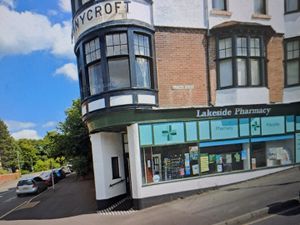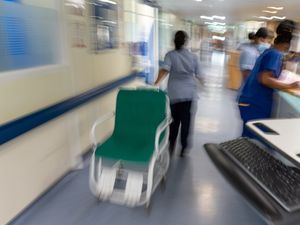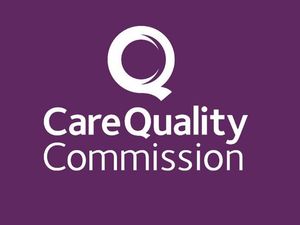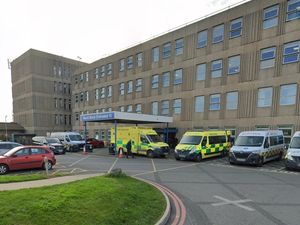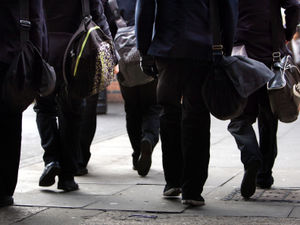GPs are undervalued say Shropshire doctors
GPs are undervalued and face an increasing workload, doctors in Shropshire have warned.
Many doctors working in surgeries have not had a pay rise for 10 years and those who have retired have not been replaced, according to retired GP Dr Charles West.
His fears for the state of the medical profession have been echoed by Dr Rob Richards, who works in Market Drayton, who said the profession was in a "black hole" in terms of recruiting new blood.
It comes after a large scale survey found a third of GPs are considering retirement in the next five years.
About one in five trainees said they are considering working abroad before 2020, while only a third said they would not recommend it as a career, with a further 18 per cent unsure.
The poll was carried out by the British Medical Association (BMA), which said the results question the feasibility of election pledges that promise to dramatically increase the number of GPs in the next five years and make doctors available seven days a week.
Dr West, who worked in both Church Stretton and Shrewsbury, said: "GPs are undervalued. They are not poor, they have never been poor, but workload has increased enormously.
"Most GPs have had no pay rise in 10 years and some have gone backwards in 10 years.
"A big problem has been not replacing the GPs which have been retiring anyway.
"It's all well and good saying they will increase the number of GPs but where are you going to get them from?
"We need to change the culture and feeling of GPs. It's not just about paying more – it's about giving more support."
Dr Richards of Drayton Medical Practice in Market Drayton, said: "We are facing a hugely increasing workload.
"A lot of the problems in the NHS get blamed on GPs. We are powerless to do anything about it and we are not being listened to.
"A lot of surgeries are struggling to recruit. There are no way enough doctors to open seven days a week.
"Until we address this issue we are getting ourselves into a black hole."
The survey pointed out that as it takes five to eight years to train a GP it is not possible to create thousands of GPs in this time frame and the pledges "blindly ignore the recruitment and retention crisis that is draining the numbers" currently in practice.
The survey questioned 15,560 GPs and almost three in 10 who are currently working full-time said they are thinking about moving to part-time hours and seven per cent considering quitting medicine altogether.
About a third said they are considering retiring from general practice in the next five years.
More than two-thirds said that while manageable, they experience a significant amount of work-related stress, but one in six feel their stress is significant and unmanageable.
Nearly four in 10 said they feel that their current workload is too much to cope with, while more than half said it is generally manageable but too heavy at times.
Dr Chaand Nagpaul, BMA GP committee chairman, said: "GPs are overworked and intensely frustrated that they do not have enough time to spend with their patients.
"Instead GPs are being taken away from treating patients by pointless paperwork or other work that has often been moved without proper resourcing into the community. Many GPs are facing burnout from increased stress.
"In this climate, it is absurd that in the recent leaders' debate, political parties were attempting to outbid each other on the number of GPs they could magically produce in the next parliament.
"Rather than playing a numbers game, we need politicians to focus on addressing the pressures facing GP services, so that we retain the current GP workforce and attract young doctors to become GPs.
"If we do not have an honest, open debate about the future of general practice, we could soon be in a situation where we do not have enough GPs to deliver effective care to patients."

